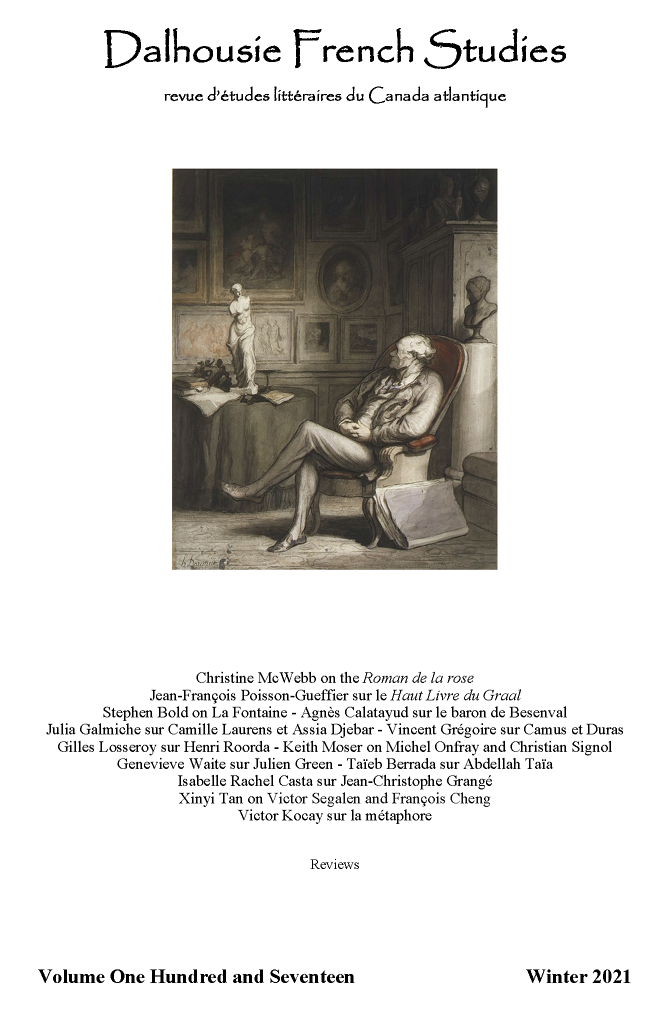L'homoeérotisme en autotraduction : Le cas de Sud / South de Julien Green
Résumé
Écrivain translingue de nationalité américaine, Julien Green (1900-1998) a écrit une grande variété de romans, pièces, nouvelles, et essais, ainsi que l‘un des journaux intimes les plus longs du vingtième siècle. Parmi ses textes bilingues se trouve une pièce d‘inspiration homoérotique, Sud (1953), que l‘auteur a traduite en anglais comme South (1959) avec l‘aide de sa soeur, Anne Green. Quoique l‘homoérotisme des personnages des oeuvres de Green ait déjà été examiné dans certains textes critiques, l‘évolution de cet homoérotisme dans une pièce autotraduite comme celle de Sud / South n‘a pas encore été étudiée de près. Dans cet article, on montrera ainsi comment cet auteur a transformé le drame de l‘amour homosexuel de sa première pièce, Sud (1953), dans son autotraduction, South (1959), et les effets de ces changements linguistiques sur le lecteur. Plus précisément, on analysera comment Green a employé une approche translative du moins-dit pour cacher la plupart de l‘intrigue centrale de la version traduite de sa pièce. À cause de multiples coupures, révisions, et ajouts en autotraduction, l‘amour du lieutenant Ian Wiczewski pour le jeune Erik Mac Clure, ainsi que l‘orientation homosexuelle d‘Édouard Broderick, sont moins visibles dans South que dans Sud. Par conséquent, Sud et South apparaissent comme deux versions bien disparates de la même oeuvre.
As a translingual American writer, Julien Green (1900-1998) wrote a wide variety of novels, plays, short stories, and essays, as well as one of the longest recorded journals of the twentieth century. Among his bilingual texts Green published an important homoerotic play, Sud (1953), which he later translated into English as South (1959) in collaboration with his sister, Anne Green. Although the homoerotic nature of the characters of Green‘s novels has been examined in certain critical texts, the evolution of this homoeroticism in Green‘s self-translated play, Sud / South, has not yet been studied in detail. This article will, therefore, show how Green radically transformed the drama of homosexual love from his first play, Sud (1953), in his self-translation, South (1959), and the effects of these linguistic changes on the reader. More specifically, this critical analysis will demonstrate how Green used a translative approach of the moins-dit in order to conceal a substantial portion of his original French play‘s central intrigue. Because of multiple omissions, revisions, and additions in self-translation, Ian Wiczewski‘s love for the young Erik Mac Clure, as well as Édouard Broderick‘s homosexual orientation, are less visible in South than in Sud. Consequently, Sud and South appear as two very disparate versions of the same text.


